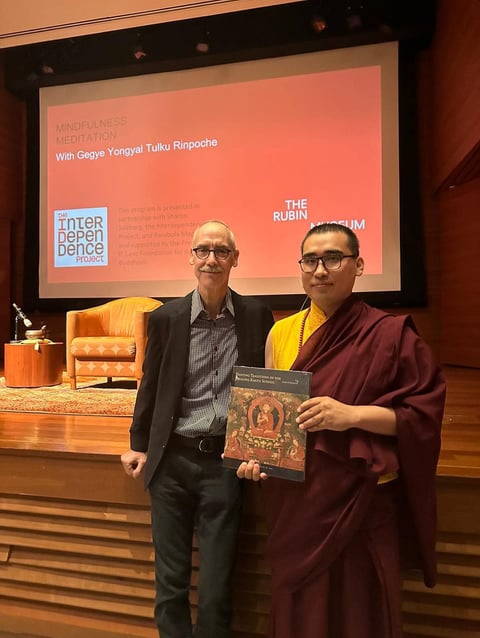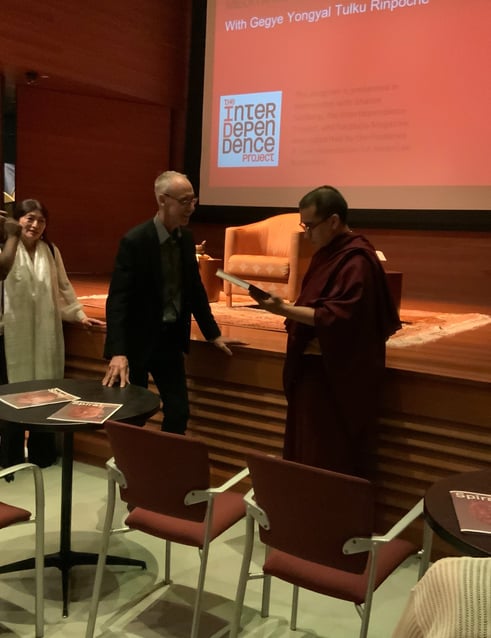Gegye Yongyal Rinpoche at The Rubin Museum of Art talking about Mindfulness Meditation Gegye Yongyal Rinpoche giving a teaching at a Monastery in Connecticut, US
On August 8, 2024, during the day of Drukpa Tse Shi, when the Buddha first turned the Wheel of Dharma and taught "The Four Noble Truths," Rinpoche gave a precise teaching on interconnectedness, Avalokiteshvara, and guided mindfulness meditation at the Rubin Museum of Art in New York City, USA.
BLOG
9/10/20241 min read





Gegye Yongyal Rinpoche with the Director of Rubin Museum of Art
Gegye Yongyal Rinpoche with Host Tashi Choten
His Eminence Gegye Yongyal Tulku Rinpoche is an ordained Buddhist teacher and a prominent leader in the Kagyu Nyigma tradition of Tibetan Buddhism. He holds a master’s degree in Buddhist philosophy and has completed extensive meditation training. As the third seat reincarnate Trulku of Gegye Tashi Choling Monastery in Nyari (Mt. Kailash), he was enthroned as the Trulku of the second Gegye Yongyal Tulku Rinpoche at Gegye Tashi Choling Monastery. His Holiness the 17th Gyalwa Karmapa conducted his hair-cutting and name-giving ceremony in India.
Rinpoche has mastered key areas of Buddhist philosophy, including Pramana Sutra, Prajnaparamita Sutra, Madhyamika Sutra, Abhidharma Sutra, and Vajrayana Tantra. He currently serves as the president of the Amala Center Nepal and the Himalayan Buddhist Center Australia. Since 2020, Rinpoche has been actively teaching Buddhist dharma and contributing to society. He is a revered lama in Tibet and China, focusing on the practical application of Sutrayana Buddhism, Vajrayana Buddhism, and modern Buddhist ethics. His teachings aim to cultivate loving-kindness and compassion, fostering personal transformation and bringing individuals closer to their Buddha nature.
This program is presented in partnership with Sharon Salzberg and teachers from the New York Insight Meditation Center, the Interdependence Project, and Parabola Magazine and supported by the Frederick P. Lenz Foundation for American Buddhism.
Wisdom
Serving all sentient beings through profound teachings.
© 2024. All rights reserved.
